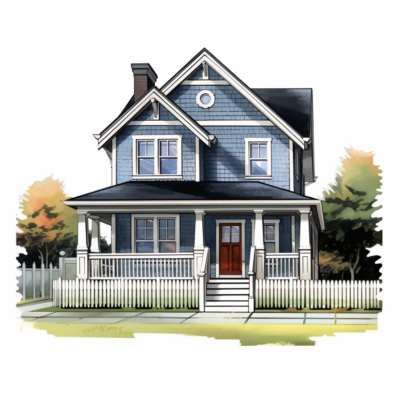 Before deciding to put your home on the market, it’s crucial to understand how long you should ideally reside in it to either make a profit or at least recover your purchase costs. Although the specifics vary depending on individual circumstances, real estate expertise often suggests a five-year minimum tenure.
Before deciding to put your home on the market, it’s crucial to understand how long you should ideally reside in it to either make a profit or at least recover your purchase costs. Although the specifics vary depending on individual circumstances, real estate expertise often suggests a five-year minimum tenure.If you’re contemplating the right time to sell your home post-purchase, here’s what you should take into account.
The length of time you’ve owned your home is just one aspect of the selling equation. Several other financial considerations come into play when you’re planning to sell. While these may appear overwhelming initially, deconstructing them into distinct elements simplifies the process:
Closing Costs: These refer to the costs and transactions related to home purchase, such as:
- Seller’s agent commission, which is typically 5% of the sale price.
- Closing costs ranging from 3% to 6% of the home price.
- Expenses on last-minute home improvements and moving costs.
- Secondary closing costs for your subsequent home purchase, often 3% to 6% of the cost as the buyer.
Capital Gains Taxes: If you sell your home for a profit, you’re usually required to pay capital gains tax on it. Short-term capital gains tax applies if you own the home for less than a year, and the rate is determined by your ordinary income and filing status. If you own the home for a longer period, you’ll pay taxes at a rate lower than your ordinary income.
Your Home’s Current Value: Although real estate tends to appreciate over time, market fluctuations can impact your home’s current value. It’s generally best to avoid selling if your home’s value has decreased or is less than what you owe on it.
The Housing Market: Even if your home’s value is appreciating, a buyer’s market might be a deterrent to selling. Ideally, you want to wait for a seller’s market to maximize your selling price.
Home Improvement Costs: Any home improvement projects that need to be completed before selling should be factored into your sale price.
Selling your home shortly after purchasing may not allow enough time for your home’s value to appreciate sufficiently to cover these costs. Delaying the sale could enhance your chances of making a profit or at least hitting your home’s breakeven point.
Estimating Your Breakeven Point Your goal should be to sell your house at a profit. However, understanding your breakeven point can help you determine the minimum sale price you should accept.
The average recommended tenure in a home is about five years, but depending on various factors, you may reach your personal breakeven point sooner or later. Calculating your home’s value, what you owe on your mortgage, and your associated costs will give you a clear idea of this point.
To achieve your breakeven point, you need to wait until your home’s value appreciation outweighs the closing costs. For example, if your closing costs added 15% to your sale price and homes in your area typically appreciate 3% to 5% per year, about five years would be a reasonable breakeven point.
What if You Need to Sell Before Five Years? There could be situations where selling before reaching your breakeven point, including purchase transactions, is inevitable. Whether it’s a family emergency compelling you to move or a career opportunity elsewhere, you must be prepared for the possibility of not recouping your purchase costs.
Here are some tips to maximize your investment returns:
- Complete only essential renovations. Most renovations do not offer a 100% return, so investing in additional costs could be fruitless.
- Ensure you can pay off your loan and handle transaction costs. It’s important to have enough liquidity to cover any potential losses

